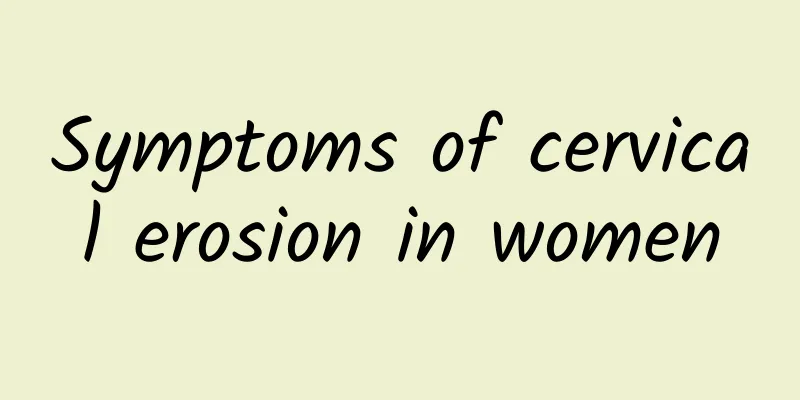Treating menopause is not an easy task

|
As the pressure of life increases, women's life and diet become more and more irregular, leading to early menopause for more and more people. Patients should actively learn about the common methods of treating this disease and choose the most effective treatment method according to their own situation, so as to give themselves a healthy body. Now let's consult experts on how to treat menopause. Drug treatment: 1. In principle, HRT (hormone replacement therapy) should be aimed at maintaining the health of the body. For example, long-term medication is required to prevent postmenopausal degenerative diseases. (1) Etiological treatment: During the reproductive period, the cyclical changes in the estrogen and progesterone in the blood of women participate in coordinating the physiological activities of the body, becoming an important factor in stabilizing the internal environment of the female body and maintaining health. After menopause, the continuous decline of estrogen and progesterone causes women's physical and mental dysfunction, and the body produces a series of degenerative lesions, resulting in poor physical health of some women. Etiological treatment is given to these health problems caused by estrogen deficiency. (2) Physiological supplementation: The purpose is to enable the organs of postmenopausal women to function physiologically as much as possible to maintain the health of the body, not to restore their endocrine conditions to the level of the ovarian cycle during the reproductive period, which is physiological supplementation. Physiological supplementation mostly advocates the use of natural estrogens, that is, the chemical structures of estrone, estradiol and estriol. The dosage is controlled at a blood E2 concentration of about 220pmol/L, or within the equivalent estrogen activity range, and should not exceed 550pmol/L. Exceeding this level may lead to an increase in side effects. Since the estrogen and progesterone in contraceptives are in large doses, highly active, and have a non-physiological chemical structure, they are not suitable for physiological supplementation in HRT. (3) During the menopausal transition period, HRT should focus on supplementing progesterone: During the menopausal transition period, the growth and development disorders of follicles gradually increase, and finally the functional follicles disappear from the ovaries. The corresponding changes in estrogen and progesterone during this period are: first, there is a relative lack of progesterone, and then there is a lack of it; the lack of estrogen changes cyclically, although there may be a transient relative excess, the total amount gradually decreases, and finally to lack, forming a relatively excessive or single unopposed estrogen stimulation for a long time. Some women may experience varying degrees of proliferative changes in the endometrium, and even malignant changes. Therefore, during this period, the main focus should be on cyclical supplementation of progesterone to adjust the menstrual cycle and prevent endometrial proliferative lesions. As estrogen gradually becomes deficient, estrogen can be supplemented at the same time. What should you pay attention to in your daily life after menopause: 1. Increase protein foods Among the more than 20 essential amino acids, 8 cannot be synthesized by the human body and need to be obtained from food, especially dairy products, eggs, lean meat, fish and soybeans. These foods can effectively relieve menopausal discomfort. 2. Eat carbohydrates in moderation Carbohydrates are found in large quantities in rice, noodles, beans, fruits, vegetables, and plant roots. Carbohydrates are a source of calories, and excess carbohydrates are converted into fat and stored. 3. Supplement foods containing vitamins Vitamins are found in foods such as milk, eggs, meat, beans, fruits, grains, and fish. Since 25% of menopausal women suffer from osteoporosis, bone protein and bone calcium deficiency, it is very necessary to supplement calcium foods. Milk is the richest in calcium and is easily absorbed and utilized. Developing the habit of drinking 1 to 2 cups of milk every day is very helpful in preventing menopausal fractures. Eat more foods rich in omega-3 fats, such as flaxseeds, which contain linolenic acid, an omega-3 fatty acid. Moreover, the lignans contained in flaxseeds are phytoestrogens, which can prevent breast cancer and uterine cancer. 4. Develop good eating habits Don't be picky eaters, and eat a good mix of coarse and fine foods; avoid overeating, especially sugars and animal fats, which can make the body too fat, increase the burden on the heart and cause atherosclerosis; eat on time, avoid overeating, vegetables and whole grains contain more cellulose and hemicellulose, which have the effect of laxative, preventing hemorrhoids and colorectal cancer. In addition, women should try to reduce the intake of fat, cholesterol, salt and alcohol during menopause, eat less salty food, and avoid smoking, drinking and coffee. For women in menopause, medication is generally chosen for treatment, but there are many drugs for this disease, so patients must choose the treatment drugs according to their own conditions and the doctor's advice to treat the disease. In addition to active treatment, patients must also take good care of themselves in daily life and provide auxiliary treatment for them, so that the condition can recover faster. |
<<: How to cure menopause quickly
>>: Why is menopause difficult to cure?
Recommend
How should women maintain their uterus after abortion? Women should know about the hazards of abortion
If an unexpected pregnancy occurs, most people wi...
Can abdominal ultrasound detect ectopic pregnancy?
Can abdominal ultrasound detect ectopic pregnancy...
Can high prolactin cause cervical adhesions?
High prolactin levels will not directly cause cer...
Cervical erosion surgery still bleeding 20 days later
Cervical erosion surgery still bleeding 20 days l...
Four groups of people who are prone to ectopic pregnancy
When the fertilized egg stays outside the uterine...
Will the hcg value increase in ectopic pregnancy? There is no way to judge
In life, many female friends may experience ectop...
Learn more about how to prevent cervical erosion
In recent years, the emergence of cervical erosio...
Do you know what are the dangers of cervicitis?
Now we are not unfamiliar with the term cerviciti...
What Chinese medicine can be used to treat premature ovarian failure
What Chinese medicine can be used to treat premat...
What should I do if I have uterine fibroids? What is the treatment for uterine fibroids?
The treatment of uterine fibroids is generally ba...
There are two main methods for diagnosing vulvar leukoplakia.
In order to accurately choose the treatment metho...
What should pregnant mothers do if they have cervical erosion? Learn 5 health care measures to prevent cervical erosion during pregnancy
For expectant mothers, pregnancy is a happy and d...
What complications can fungal vaginitis cause?
What complications may fungal vaginitis cause? 1....
Is it possible to control weight and still want to eat dessert? Baking sweetheart recommends 5 light cakes to enjoy delicious food and lose weight
Is it possible to control your weight and still w...
What causes ovarian cysts and how to treat them
An ovarian cyst is a fluid or semisolid mass that...









